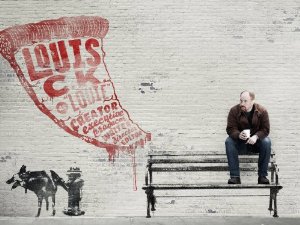“Sufficient Ambiguity”: An Interview with Deborah Smith
Deborah Smith is a translator of Korean and the founder of a new non-profit London-based publisher, Tilted Axis Press. Recently, she has worked with Korean author Han Kang to bring her novel The Vegetarian to an English-reading audience. The book is a collection of three linked novellas about a woman who gives up eating meat after a series of violent, gory dreams and the disruption this decision creates in her life. The Vegetarian will be published in the US by Hogarth on February 2, and Smith’s next collaboration with Han Kang, Human Acts, is slated for publication by Crown in 2017.
Graham Oliver: In any book, there’s a certain amount of filling in the blanks involved with reading. This is especially true for The Vegetarian, a book in which we very rarely see into the head of the main character. While I was reading, I found myself wondering if my assumptions about the characters’ motivations—cultural versus individual personality—were correct or might be different from a Korean reader. Was this a concern with The Vegetarian? How does the act of translating not just language, but also culture, play into your work?
Deborah Smith: Yes, The Vegetarian is set in South Korea, and the characters are Korean, but aside from that I wouldn’t say that it’s an especially Korean book. One of the reasons I chose to translate The Vegetarian in the first place was because its “cultural content” is incidental, though naturally the semi-arranged marriages, extreme deference to hierarchy, and meat-eating as a badge of both male virility and economic health, will loom larger for readers of the translation than it did for South Koreans. Besides, even for a country as ethnically homogenous and fond of conformity as South Korea, “culture” isn’t some kind of singular monolith.
To me The Vegetarian always seemed like a contemporary re-telling of a myth, except one where that original myth is absent as there’s no Korean or even East Asian tradition of metamorphosis comparable to that of the Greeks. That’s because Han’s really writing about archetypes: Art, and Desire, and Violence. The specifically Korean social structures inflect how these play out, but those situational tweaks aren’t the main focus.
GO: I read the central metaphor or theme of the book to be about women trying to assert control over their own lives and bodies. Reading reviews of the book, though, I see that people have focused on many different interpretations. Do you see this as a product of varying cultural perspectives?
DS: I think this speaks to what’s allowed the book to travel so well. It’s been translated into around ten languages so far. While I don’t actually think a specifically feminist reading is the message of the original, largely because feminism is much less mainstream in South Korea, I think it’s probably legitimate to call it one of the messages of the English translation. Certainly, a lot of Anglophone readers have approached it from a feminist perspective, though others have also placed in a tradition that includes Melville’s Bartleby and Kafka’s Gregor Samsa.
In Vietnam, still a largely patriarchal society, readers saw the book as an exploration of Korean patriarchy while in staunchly Catholic Poland Yeong-hye’s (the protagonist of The Vegetarian) renunciation was seen as the kind of self-sacrificial mortification of the flesh practised by medieval saints. Neither Han nor I would say that any of these readings are more or less “correct”. She’s always concerned to leave sufficient ambiguity in her books for varied interpretations. But they are very far from what she had in mind when writing because she has a different background. For example, ever since I found out that she’s Buddhist, I can’t help but read The Vegetarian in light of Buddhist ideas of non-harming, of violence as something inherent in all human beings.
GO: Can you talk a little bit about your latest novel translation, Human Acts, which was also written by Han Kang?
DS: Human Acts is very different to The Vegetarian, in that it’s based around the 1980 massacre in Gwangju, a city in the far south of the Korean peninsula that’s also Han’s hometown. At the same time, it’s recognisably by the same writer. She’s always been a writer who politicises the personal, and here she personalises the political. Han felt a responsibility to document what was actually done, so there’s some pretty brutal stuff here, but it’s described with the same emotional and stylistic restraint that characterises all of her writing. No gratuitous gore, no exclamation marks.
GO: Let’s end with some recommendations. Who else, besides Han Kang, should we be reading from Korean literature?
DS: If you’d asked me this a year ago I’d have been stumped, but it seems we’re seeing a boom in contemporary translations, thanks in part to exciting indie publishers willing to take a risk, and in part to the efforts of translators and LTI Korea to get the work out there. From 2016 publications, I’d recommend Jung Young Moon’s Vaseline Buddha, translated by Yewon Jung. My own company, Tilted Axis, will be publishing another of her translations, A Hundred Shadows by Hwang Jung-eun.
Sora Kim-Russell, another brilliant translator, had two books out last year which I’d recommend – Princess Bari by Hwang Sok-yong and Nowhere to be Found by Bae Suah. For me, Han Kang and Bae Suah are South Korea’s greatest contemporary authors. I’ve translated two of Bae’s novels, A Greater Music and Recitation, which will be published in the fall by Open Letter and Deep Vellum respectively.
Read an excerpt from The Vegetarian here.


